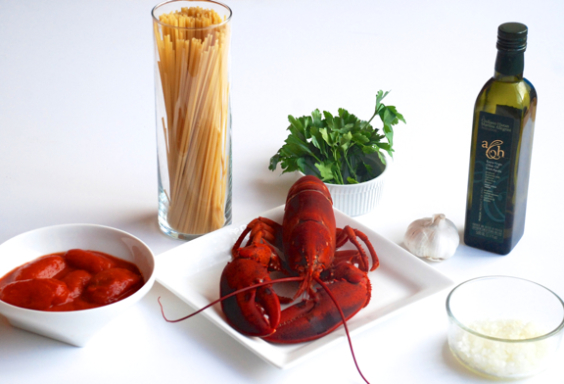Many of the favorite dishes on our table have come out of an unpredictable intersection of culinary cultures. My father’s people came from the farmlands of Romagna, the eastern section of Emilia-Romagna. Those on my mother’s side, although originally from Le Marche, had long since been part of the expatriate Italian community that had settled in the Middle East, Syria and Egypt. The people on both my in-laws’s side were the same because they were first cousins: Spanish-speaking Jews whose ancestors had emigrated to Turkey in the 15th Century. And so, although our backgrounds were religiously and in many other ways diverse, there were moments at table where they coincided. My mother and Victor’s mother cooked bamya (okra) in the same manner, with tomatoes and lemon, they both cooked green beans in tomatoes until they were very soft, so delicious compared with the tasteless and unchewable nearly raw green sticks that restaurants now pretend are beans. Both my mother and my mother-in-law were crazy about baklava. And there were many other dishes in common, some of which are described in Janet Amateau’s essay.





3 comments
wow i learned something about your family i didnt know..and something im familiar with…was engaged toa guy whose family background was syrian jew..and his parents were first cousins…hes married to someone else now.,..
I enjoyed reading your article!I believe strongly that we should learn about each others cultures through there cuisines! I took a cooking class in Istanbul this past June, my teacher was a Sephardic Jewish lady whose family migrated from the Iberian Peninsula. It was so much fun to hear her stories and learn about the food! Baklava looks superb!
It was that very combination of tomato and lemon that many years ago led my aunt and my mother to drop their jaws one day in Como over a simple – and delicious – plate of spaghetti with tomato sauce. “It’s just like mother’s!” they said (their mother was from Rhodes). They were genuinely amazed, because outside of our community we didn’t know of anyone else who cooked like we do. But the crossover goes both ways, and it’s endlessly fascinating. I’d also always been aware of the strong similarities between the Rhodesli and certain Italian culinary sensibilities. I eventually learned that, not surprisingly, our Spanish ancestors began their emigration to Rhodes not directly from Spain, but from Livorno and Venezia.